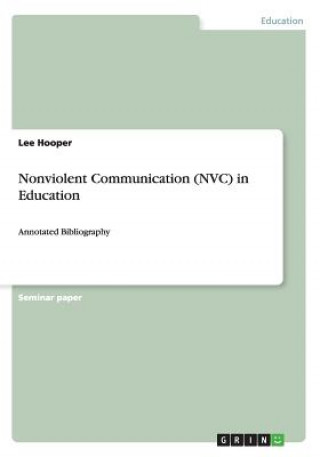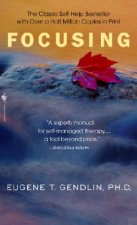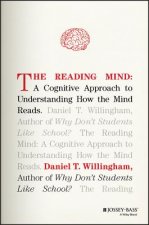
Kód: 02172887
Nonviolent Communication (NVC) in Education
Autor Lee Hooper
Seminar paper from the year 2013 in the subject Pedagogy - Pedagogic Psychology, grade: 1,3, Massey University, New Zealand, course: Counselling, language: English, abstract: Nonviolent communication (NVC) is an approach to create ... celý popis
- Jazyk:
 Angličtina
Angličtina - Väzba: Brožovaná
- Počet strán: 16
Nakladateľ: Grin Verlag, 2013
- Viac informácií o knihe

Mohlo by sa vám tiež páčiť
-

Focusing
9.43 € -17 % -

Focusing-Oriented Psychotherapy
50.92 € -

Parenting From Your Heart
8.31 € -1 % -

Alte Meister der Eisenbahn-Photographie: Hans Schneeberger
29.82 €
Darujte túto knihu ešte dnes
- Objednajte knihu a vyberte Zaslať ako darček.
- Obratom obdržíte darovací poukaz na knihu, ktorý môžete ihneď odovzdať obdarovanému.
- Knihu zašleme na adresu obdarovaného, o nič sa nestaráte.
Viac informácií o knihe Nonviolent Communication (NVC) in Education
Nákupom získate 28 bodov
 Anotácia knihy
Anotácia knihy
Seminar paper from the year 2013 in the subject Pedagogy - Pedagogic Psychology, grade: 1,3, Massey University, New Zealand, course: Counselling, language: English, abstract: Nonviolent communication (NVC) is an approach to create empathetic and honest connection amongst people using communicative techniques. NVC was first developed by Rosenberg (2003) in the 1960s. The principles of NVC are based on humanistic concepts from theorists such as Rogers, Maslow, and Fromm. NVC theory proposes that conflicts result from habitual communicative patterns whereby violent language based on emotions such as fear, guilt and anger, are used to try and meet one s need. Universal feelings and needs are a major key point of this theory. NVC recommends the use of a four step process to help bring clarity and awareness into communication. These steps are based on observations, feelings, needs, and requests. The first step involves differentiating between observations and evaluations, so specific behaviours and actions can be identified free of judgement. The second step is to become aware of what feelings are present. The third step is to find the underlying need behind the feeling. The last step involves requesting a concrete action that can help to meet that need. Rosenberg and Eisler (2003) argue that applying NVC principles into one s life can help us to see what is alive in ourselves, as well as in others.
 Parametre knihy
Parametre knihy
Zaradenie knihy Knihy po anglicky Society & social sciences Education
11.25 €
- Celý názov: Nonviolent Communication (NVC) in Education
- Autor: Lee Hooper
- Jazyk:
 Angličtina
Angličtina - Väzba: Brožovaná
- Počet strán: 16
- EAN: 9783656512431
- ISBN: 3656512434
- ID: 02172887
- Nakladateľ: Grin Verlag
- Hmotnosť: 45 g
- Rozmery: 254 × 178 × 2 mm
- Dátum vydania: 13. October 2013
Obľúbené z iného súdka
-

Oxford IB Diploma Programme: IB Economics Course Book
62.49 € -

OET Preparation
10.34 € -

Cambridge IGCSE (R) & O Level Complete Physics: Student Book Fourth Edition
38.75 € -

Business Partner B2 Workbook
16.73 € -4 % -

Business Partner B1 Workbook
17.44 € -9 % -

Imagine If...
10.95 € -23 % -

OET Reading Subtest Preparation
12.67 € -7 % -

Vol 2 Blackletter Lettering Adventures
26.78 € -

AS & A Level Maths For Dummies
19.47 € -18 % -

CompTIA Security+ Review Guide - Exam SY0-601
26.17 € -20 % -

Hanbo Jutsu: Use of Hanbo, Cane and Walking Stick for Self Defense
11.56 € -

Amazing Autistic Brain Cards
41.69 € -

Embodied Teen
22.01 € -15 % -

Blue Book of Grammar and Punctuation: An Easy- to-Use Guide with Clear Rules, Real-World Examples , and Reproducible Quizzes, Twelfth Edition
16.83 € -20 % -

Positive Discipline Tools for Teachers
18.35 € -3 % -

Oxford IB Diploma Programme: IB Theory of Knowledge Course Book
58.13 € -

Oxford IB Study Guides: Economics for the IB Diploma
47.07 € -

Speed and Accuracy: Division
8.61 € -

GCSE Spanish Exam Practice Workbook (includes Answers & Free Online Audio)
7.90 € -10 % -

KS3 Maths 10-Minute Weekly Workouts - Year 7
8.01 € -9 % -

Vertical Academy
36.92 € -

Grade 9-1 GCSE Maths AQA Revision Question Cards - Higher
10.64 € -

Human Landscapes from My Country
27.69 € -4 % -

Cambridge IGCSE (R) & O Level Complete Chemistry: Student Book Fourth Edition
43.11 € -

Oxford IB Diploma Programme: IB Course Preparation Mathematics Student Book
41.29 € -

1000 TRIOS or gapped sentences for Cambridge Advanced and Proficiency Exams
24.85 € -

Business Partner B1+ Workbook
16.73 € -4 % -

(ISC) SSCP SG & SSCP Practice Test Kit, 3e
70 € -23 % -

Einkorn
20.99 € -19 % -

Czech Verbs
39.97 € -

Motivation and Reinforcement
46.66 € -

Pearson Edexcel International GCSE (9-1) English Language B Student Book
58.33 € -

Read Write Inc. Phonics: Red Ditty Book Bag Books (Mixed Pack of 10)
67.67 € -

Oxford International Primary Maths Second Edition: Practice Book 1
12.98 € -

Forensic Linguistics Articles
17.44 € -

Corrected Squares of The Book of Abramelin
606.54 € -

Exam Prep for Microeconomics by Pindyck & Rubinfeld, 6th Ed.
45.34 € -

KS3 Maths 10-Minute Weekly Workouts - Year 8
8.01 € -9 % -

Reading Mind - A Cognitive Approach to Understanding How the Mind Reads
23.83 € -20 % -

Ganzheitliche Sprachförderung
32.36 € -

Internet Protocol over Link-16
68.88 € -

Effect of Registration Errors on Tracking in a Networked Radar System
68.88 € -

Princeton Review SAT Premium Prep, 2021
45.75 € -

CEH v11 Certified Ethical Hacker Study Guide + Practice Tests Set
61.98 € -23 % -

10 Practice Tests for the SAT, 2021 Edition
33.88 € -

OCP Oracle Certified Professional Java SE 11 Programmer II Study Guide - Exam 1Z0-816 and Exam 1Z0-817
50.01 € -6 % -

Prepared
33.98 € -

Powerful Teaching: Unleash the Science of Learning
28.50 € -20 % -

Physics for You
57.52 €
Osobný odber Bratislava a 2642 dalších
Copyright ©2008-24 najlacnejsie-knihy.sk Všetky práva vyhradenéSúkromieCookies



 21 miliónov titulov
21 miliónov titulov Vrátenie do mesiaca
Vrátenie do mesiaca 02/210 210 99 (8-15.30h)
02/210 210 99 (8-15.30h)